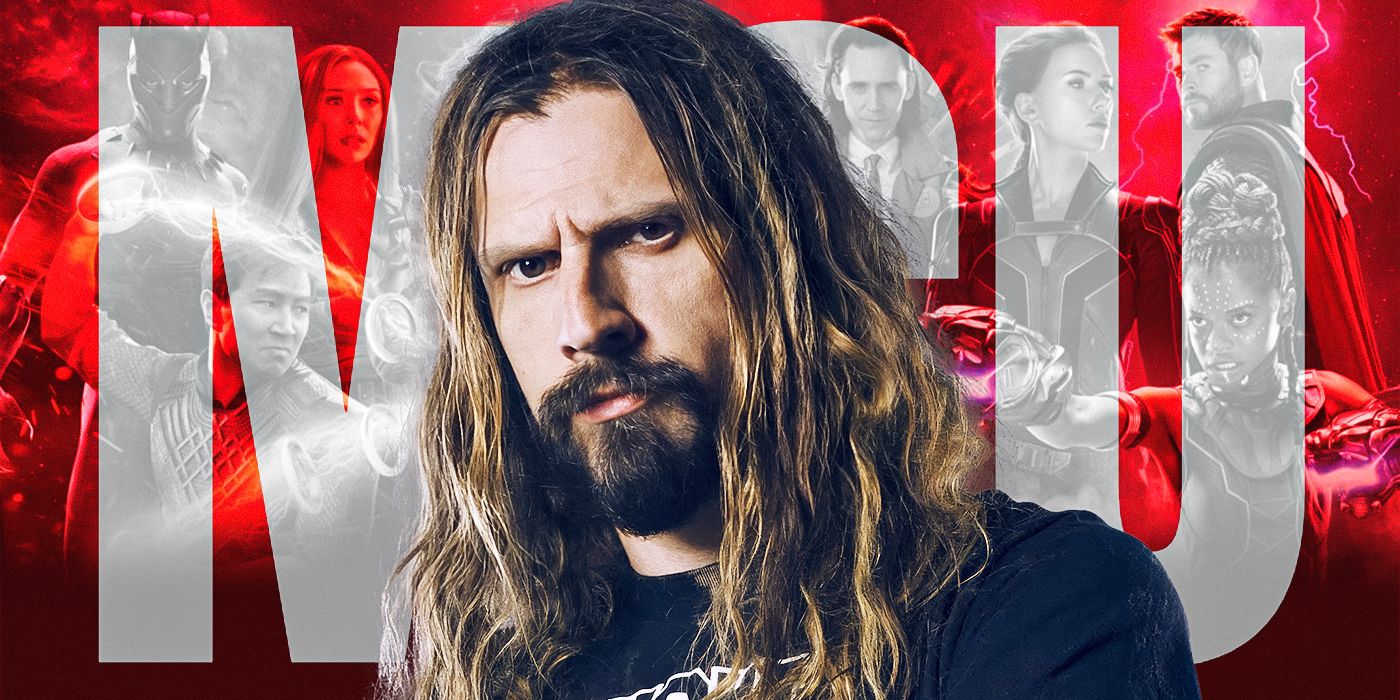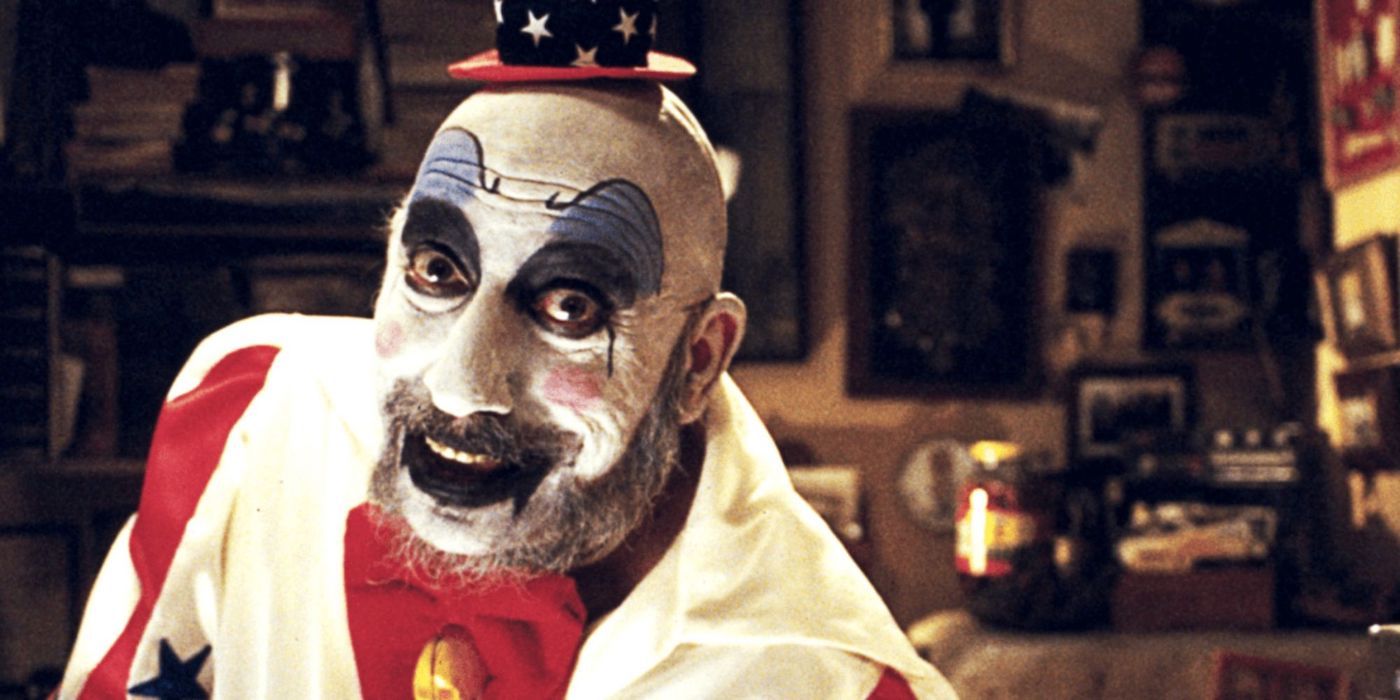Prior to being named as the new creative head of the DCU, James Gunn changed the future of the MCU with his outrageous, creative style in the Guardians of the Galaxy films. While the spacebound adventures were certainly popular among loyal fans of the Marvel Cinematic Universe, they shared some qualities with Gunn’s past films in their sharp cultural references and offbeat humor. To emphasize that point, both of the Guardians of the Galaxy films featured surprising cameos from some of Gunn’s frequent co-stars and friends, including Nathan Fillion, Seth Green, Lloyd Kaufman, Tyler Bates, Maria Bakalova, Ben Browder, Molly Quinn, and David Hasselhoff among others. However, one voice you may have been surprised to hear in the MCU is that of cult filmmaker and musician Rob Zombie.
Rob Zombie has a brief role in 2014’s Guardians of the Galaxy as the voice of an unseen Ravager navigator on board the crew of Yondu (Michael Rooker, another frequent collaborator of Gunn’s); considering that Zombie’s unseen character isn’t heard until the final battle sequence, it can be assumed that he was among the heroic crew members that decided to support Peter Quill (Chris Pratt) in the battle against Ronan (Lee Pace). Apparently, it seems like Zombie’s unidentified character survived the battle to live another day, because he appears once more in Guardians of the Galaxy Vol. 2; Zombie’s voice can be heard once again in the background of Yondu’s crew during Taserface’s (Chris Sullivan) takeover of the ship. There has been no confirmation as to whether or not this is the same character; perhaps two completely different Ravagers that happen to sound just like Zombie are among Yondu’s crew.
We’ll have to wait and see if Zombie pops up again in Guardians of the Galaxy Vol. 3, as Gunn is known for boosting the roles of supporting characters in his sequels; Guardians of the Galaxy Vol. 2 featured the return of both Howard the Duck (Seth Green) and the canine actor Frank as the space dog Cosmo. While it’s unlikely that the unidentified Ravager that Zombie voiced is going to have the same sort of character arc that someone like Kraglin Obfonteri (Sean Gunn) had, it’s nonetheless unusual to hear Zombie’s voice in a film likely to have very little crossover audience with his own films. Zombie’s cinematic work has been outrageous, controversial, and divisive to say the very least.
Rob Zombie's Work Outside His MCU Cameo
Prior to becoming a filmmaker, Zombie rose to prominence as the frontman for the heavy metal band White Zombie, collaborating on the albums Soul-Crusher, Make Them Die Slowly, La Sexorcisto: Devil Music Volume One, and Astro-Creep: 2000. The band remains highly popular among metal fans, and Zombie’s collaboration with Alice Cooper on the 1996 record “Hands of Death (Burn Baby Burn)” earned him a Grammy Award nomination for Best Metal Performance. However, White Zombie officially broke up in 1998 following the release of Zombie’s first solo record Hillbilly Deluxe, which was widely popular and established Zombie as a successful individual artist in his own right.
Before stepping into the director’s chair Zombie was already a noted film, television, and comic book buff, as his music contained themes similar to many works of science fiction and horror. In addition to serving as a production assistant on early episodes of Pee-Wee’s Playhouse, Zombie appeared in cameo roles in both Spider-Man: The Animated Series and Justice League. In 2000, he directed his first feature film House of 1,000 Corpses, which was inspired by Tobe Hooper’s The Texas Chain Saw Massacre and Wes Craven’s The Hills Have Eyes. The pitch black dark comedy was so graphic in its violence that its distributor Universal Pictures shelved the project out of fear that it would receive the dreaded NC-17 rating; Zombie re-acquired the rights personally and solid it them to Lions Gate Entertainment, who edited the content in order to ensure an R-Rating for a 2003 theatrical release.
Rob Zombie's Filmmaking Career & Hollywood Future
Despite receiving overwhelmingly negative reviews from critics, House of 1,000 Corpses was a box office success and turned profit based on its low budget; the film remains a cult favorite among many horror fans, and inspired Zombie to create two sequels with 2005’s The Devil’s Rejects and 2019’s 3 From Hell. However, Zombie’s biggest swing into mainstream Hollywood came in 2007 with his remake of John Carpenter’s 1978 classic Halloween. The Halloween franchise had been on a downward spiral following the failure of 2002’s Halloween: Resurrection, prompting a full-on reimagining. While Zombie’s film certainly did its best to differentiate itself, it remains divisive among Halloween fans.
If the initial Halloween remake at least shared some similarities to the original franchise, its 2009 sequel Halloween II (not to be confused with the original Halloween II from 1981) was a straight-up Zombie film with the type of dark humor, graphic content, and shocking visuals that his work had become notorious for. The film received even more unfavorable responses and inspired another reboot; David Gordon Green’s recent trilogy ignores the events of Zombie’s films (and every other film in the Halloween timeline other than the 1978 original). While Zombie continued to cater to his established audience with his subsequent films The Lords of Salem and 31, he took a surprising detour into family-friendly territory with Netflix’s 2022 reimagining of The Munsters. The film serves as an origin story for the titular family in the 1960s sitcom of the same name. While the change in tone was certainly a surprise for those that had followed Zombie’s filmography thus far, The Munsters was as divisive as any of his other films.
The MCU has certainly gotten wilder and weirder as different filmmakers approach the material, and there have certainly been signs that the MCU is interested in horror. Veteran horror filmmaker Sam Raimi added a sense of supernatural terror to Doctor Strange in the Multiverse of Madness, and Marvel’s “Special Presentation” of the Halloween special Werewolf by Night directed by Michael Giacchino was certainly the closest the MCU has gotten to a legitimate horror film. Hopefully, some of the projects in Phase Five will continue to utilize horror influences, as Blade and Agatha: Coven of Chaos could take advantage of some spookier elements to differentiate themselves. While it’s unlikely that the day will ever come where Zombie will be directing a Marvel movie, the fact that he is even tangentially involved is satisfying enough.


